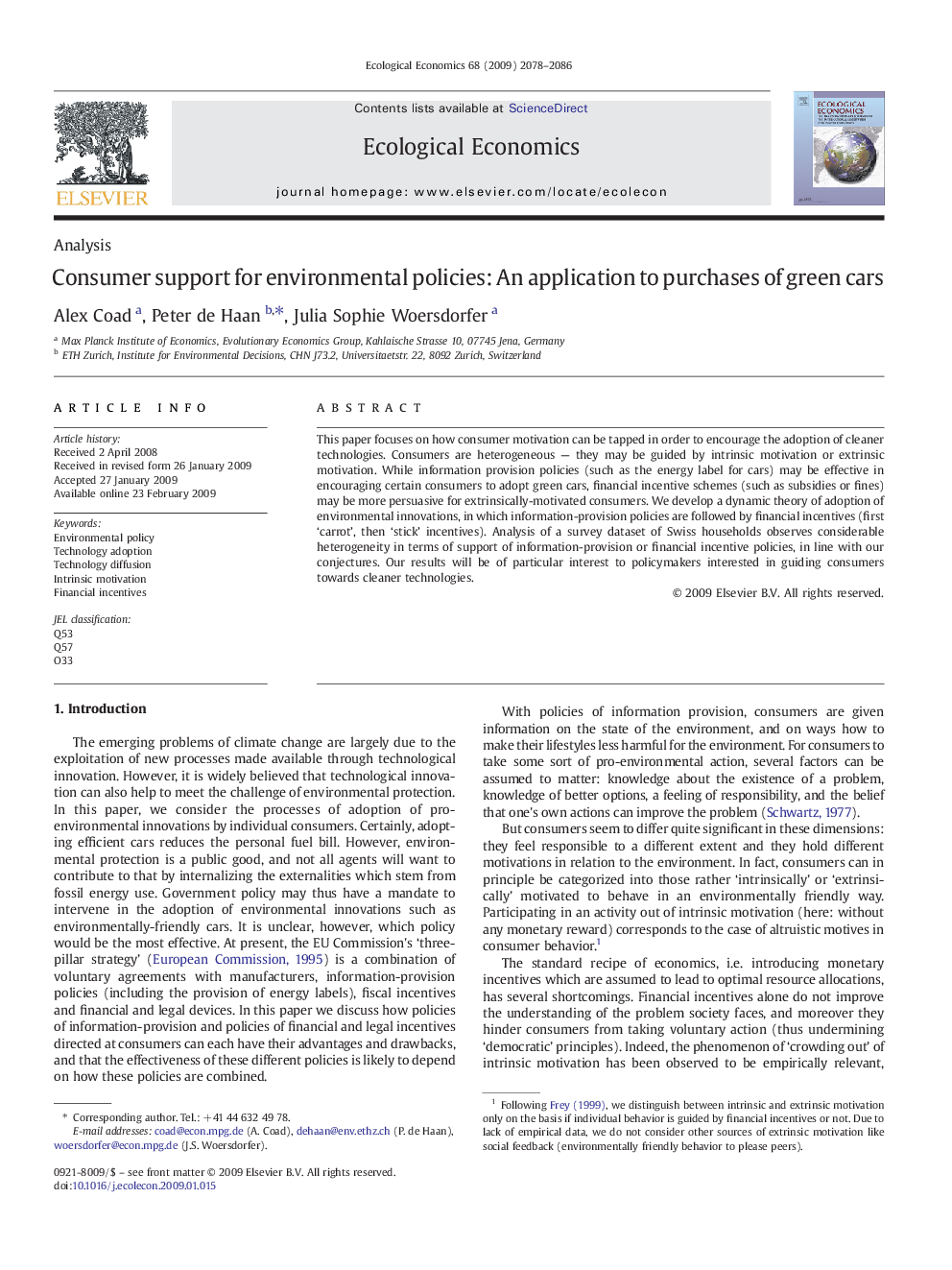| Article ID | Journal | Published Year | Pages | File Type |
|---|---|---|---|---|
| 5051323 | Ecological Economics | 2009 | 9 Pages |
Abstract
This paper focuses on how consumer motivation can be tapped in order to encourage the adoption of cleaner technologies. Consumers are heterogeneous - they may be guided by intrinsic motivation or extrinsic motivation. While information provision policies (such as the energy label for cars) may be effective in encouraging certain consumers to adopt green cars, financial incentive schemes (such as subsidies or fines) may be more persuasive for extrinsically-motivated consumers. We develop a dynamic theory of adoption of environmental innovations, in which information-provision policies are followed by financial incentives (first 'carrot', then 'stick' incentives). Analysis of a survey dataset of Swiss households observes considerable heterogeneity in terms of support of information-provision or financial incentive policies, in line with our conjectures. Our results will be of particular interest to policymakers interested in guiding consumers towards cleaner technologies.
Keywords
Related Topics
Life Sciences
Agricultural and Biological Sciences
Ecology, Evolution, Behavior and Systematics
Authors
Alex Coad, Peter de Haan, Julia Sophie Woersdorfer,
